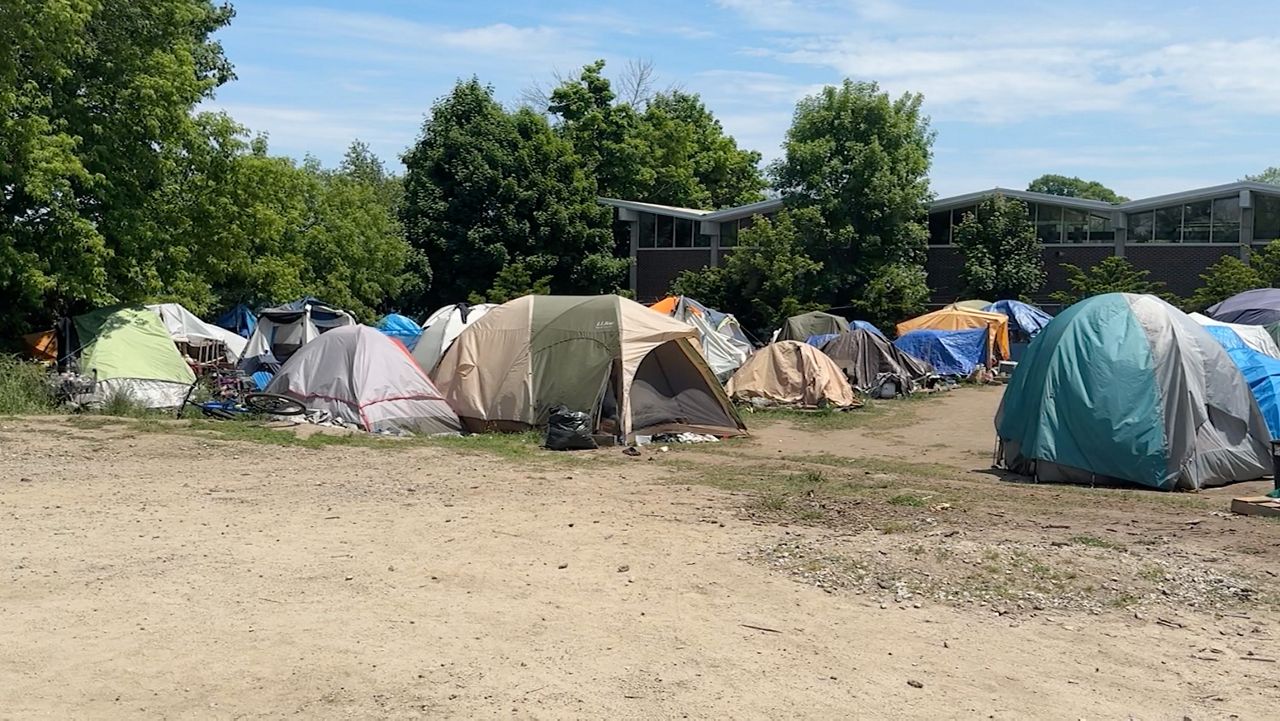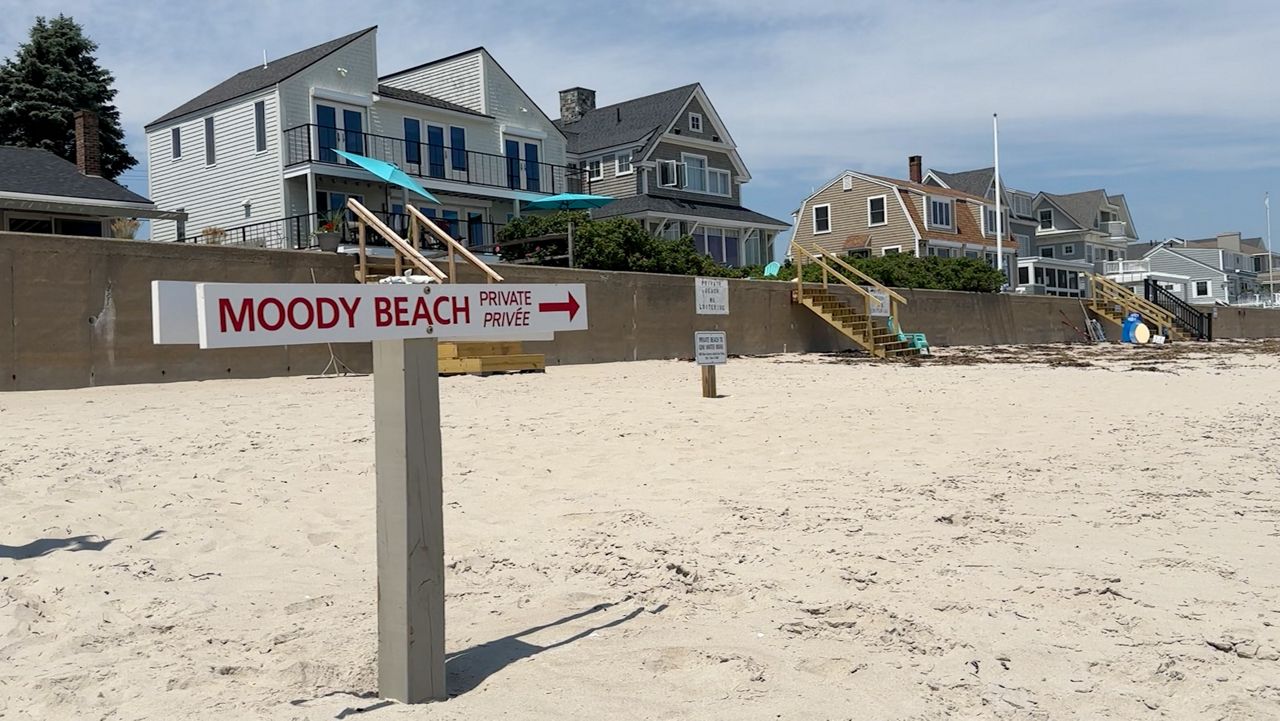Suzanne Sawyer, 58, lives in a tent in a homeless encampment on Water Street in Biddeford. She wound up there after being diagnosed with cancer and being unable to afford anything outside of her treatments.
Since then, she said, she has lived with stigma and prejudice.
“Someone called me ‘trash’ (once), and said, ‘Go do another drug,’” she said.
Now, she has about another month before she, along with everyone else at the encampment, are forced out to make way for a construction project to repair the nearby river wall.
City officials have set a deadline for clearing out the encampment, but Mayor Martin Grohman insisted that the camp’s residents will be offered help and services, not just kicked off the city property.
“We’re going to work with people intensively to find the next right step for them,” he said. “It’s not our intent to arrest anybody or anything like that. This is not a sweep. This is Biddeford. We’re a small, compassionate city.”
The camp, located next to Mechanics Park, has about 20 tents in it, and Grohman said on any given day, there could be 40-45 people living there. The city is planning a construction project along the river in August, and officials have set a date of July 8 to relocate everyone out of the camp.
Despite the upcoming project, Grohman said efforts to relocate the camp’s residents have been in the works for some time. Ongoing work to help the city’s homeless is based on compassion, he said, and isn’t limited to the group living next to the park.
“Living outside in an encampment is not a dignified existence for anyone,” he said. “We’ve been looking for a solution and that next step for some time.”
There is at least one other encampment elsewhere in the city, Grohman said, and even after the Water Street encampment’s residents are relocated, the city will continue working to help people who are living on the street to find permanent homes.
Right now, Grohman said, city officials meet weekly with advocates to discuss the ongoing needs of local homeless people. Just recently, Grohman said, the city appointed a new homeless services coordinator who he said will help everyone, including residents of the camp, to find permanent housing and other needed assistance.
Cullen Ryan, executive director of Community Housing of Maine, which consulted with Grohman on the local camp, said similar camps have appeared in other communities, including Portland, Sanford and Waterville.
The camps began appearing, Ryan said, in part due to the influx of asylum seekers in Portland leading to a scramble for permanent housing.
The best approach for any municipality, including Biddeford, Ryan said, involves three things: Create a safe indoor space, provide housing navigation services and build relationships based on the idea that people deserve to be inside and are welcome.
Over the past few months, Ryan said, Portland has used this approach to dramatically reduce the number of homeless living on the streets, and Waterville has virtually eliminated homelessness entirely. Biddeford, he said, seems to be on its way to being similarly successful.
“I think Biddeford is being really clever about trying to work with area shelters to create indoor safe space for people,” he said.
While Biddeford itself has no homeless shelter, Grohman said the city is partnering with Seeds of Hope, a local charitable organization, along with the Second Congregational Church.
Both organizations, Grohman said, will help the camp’s residents find temporary shelter, food, and assistance getting into permanent housing.
Grohman said he has visited the Water Street encampment himself, and that residents know the city will be relocating them.
At the camp on Wednesday, Sawyer said she would welcome the city’s help.
Sawyer used to be a permanent resident of Biddeford and had a career, working as a U.S. Coast Guard auxiliary and as a security officer for a private security company.
That all ended after Sawyer was diagnosed with non-Hodgkins lymphoma in 2020.
“Cancer took everything from me, my car, my home, my career,” she said.
Now homeless, Sawyer said she needs a fixed address to continue her treatments. She hopes the city can in fact help her find something permanent.
“I want an apartment, an efficiency, something inside,” she said through tears. “I want a shower so bad. I’m embarrassed to go anywhere.”





